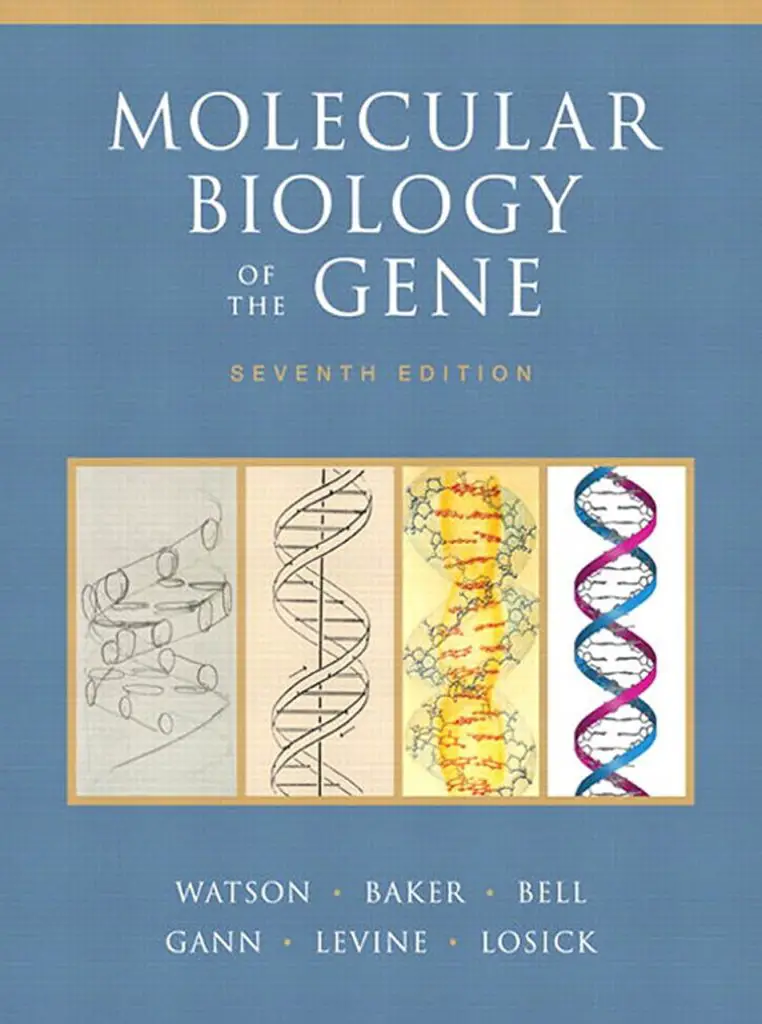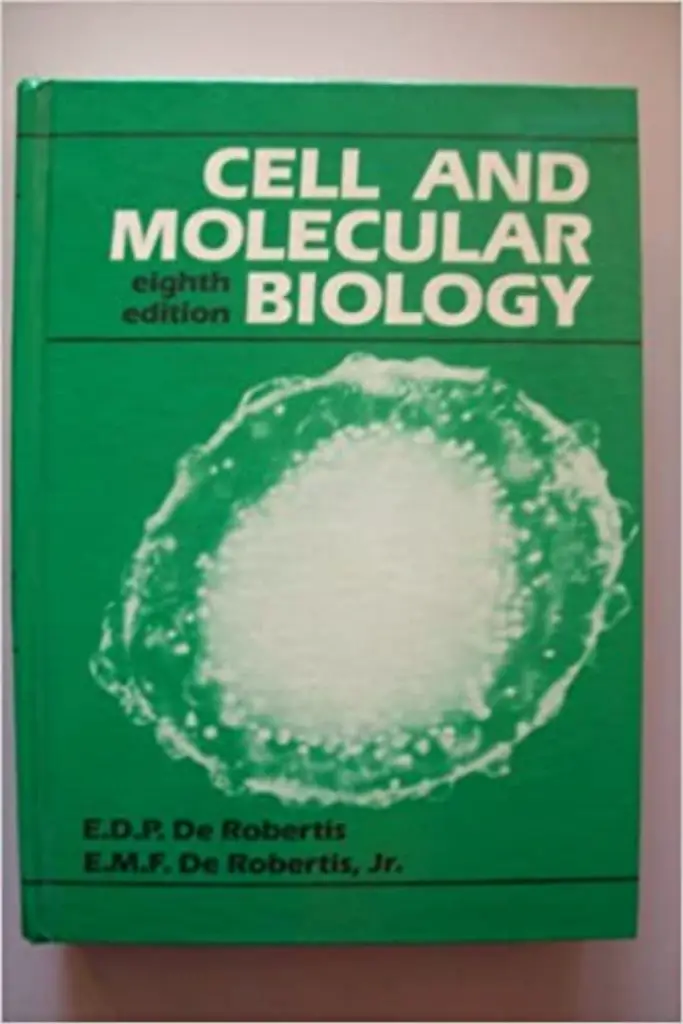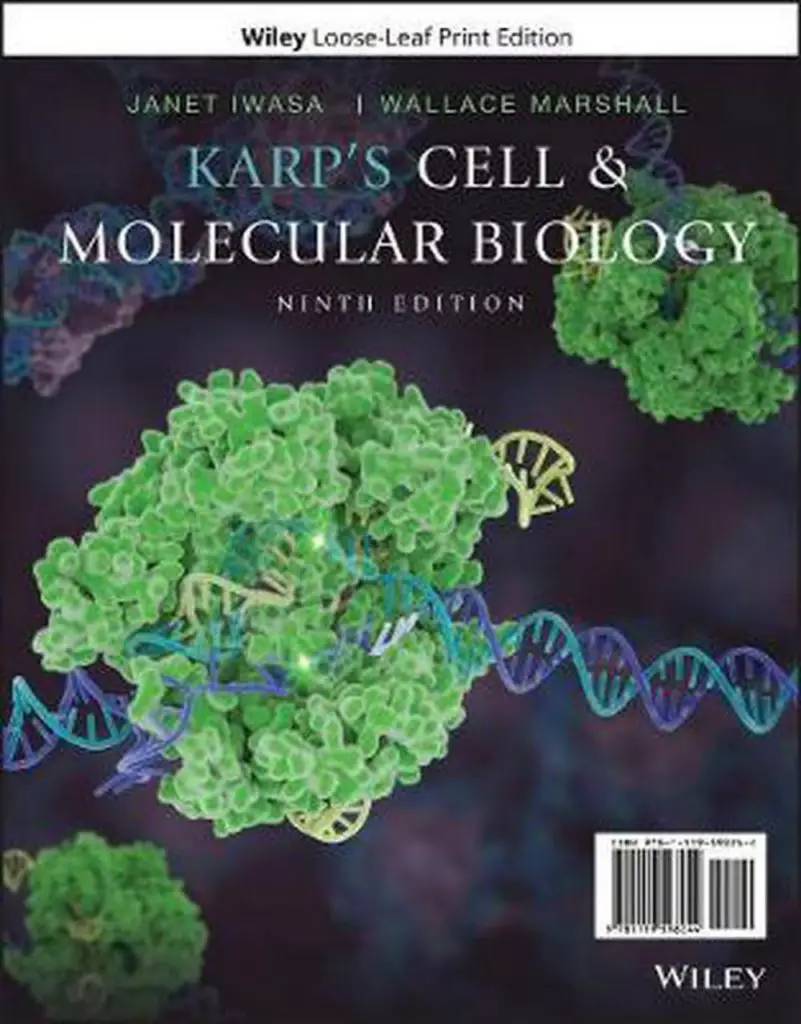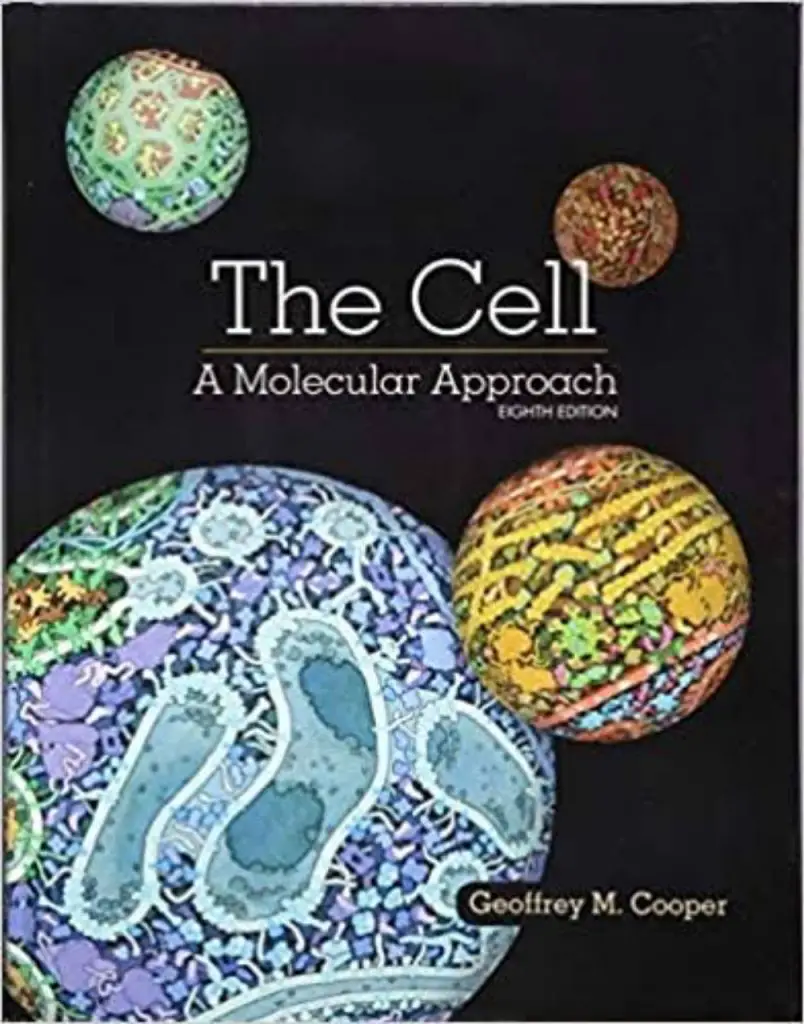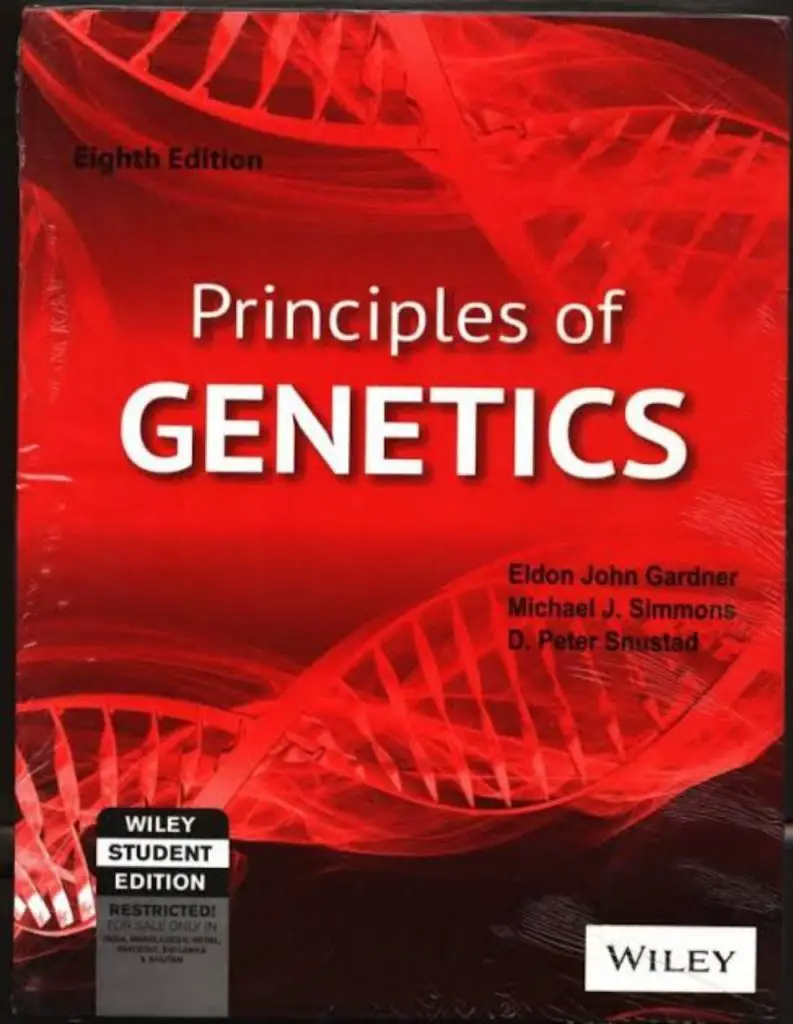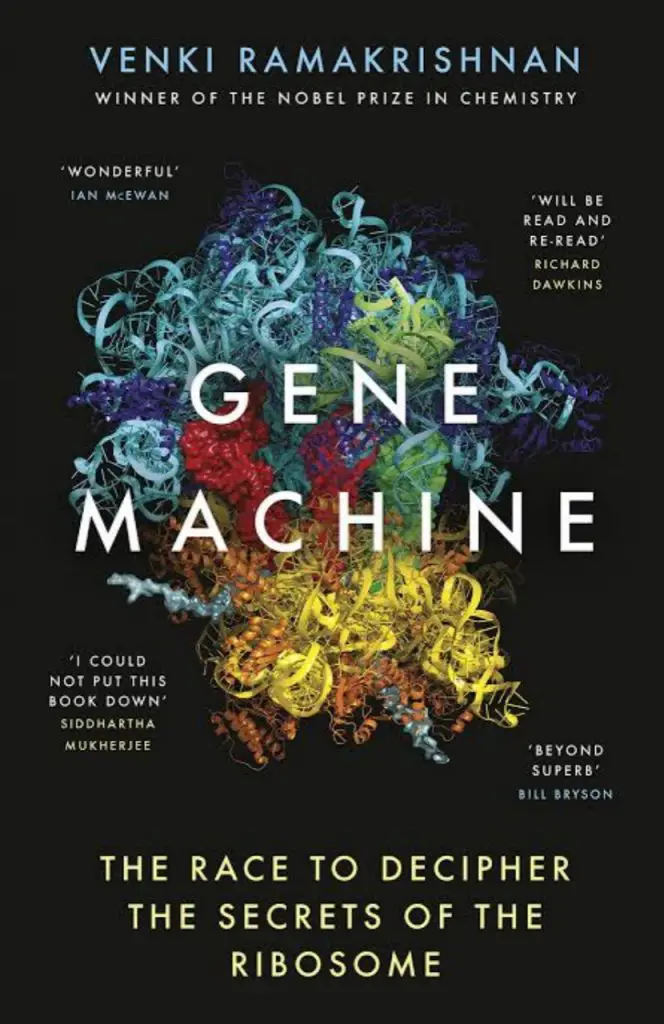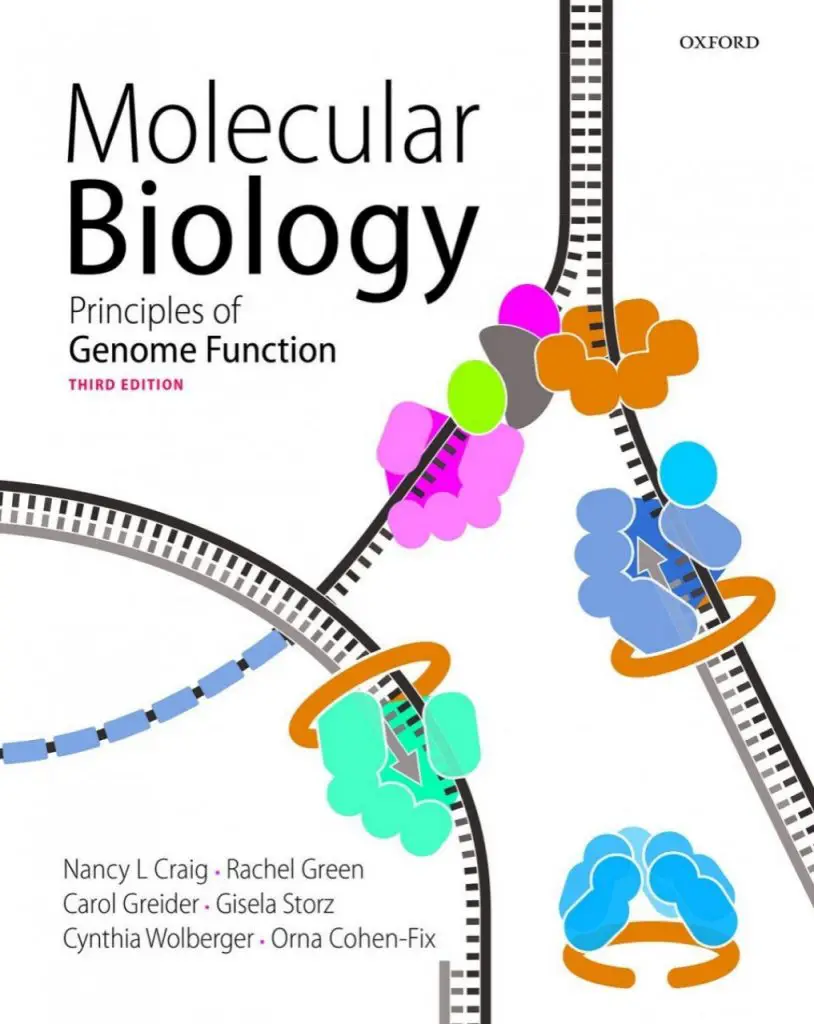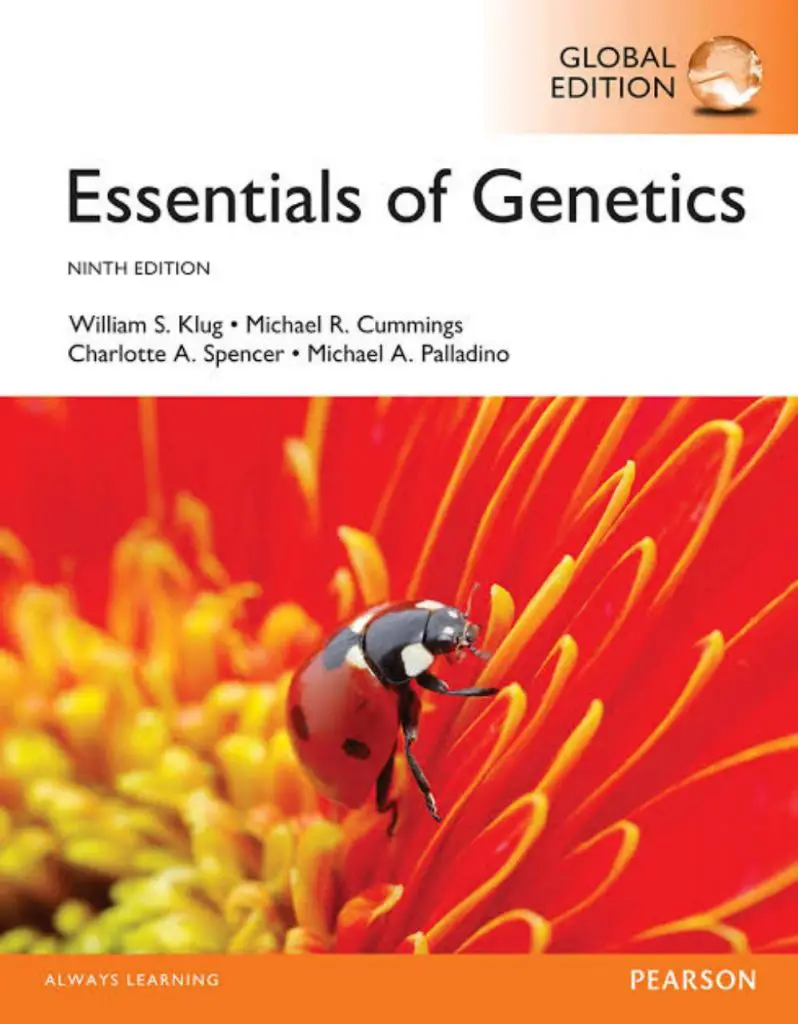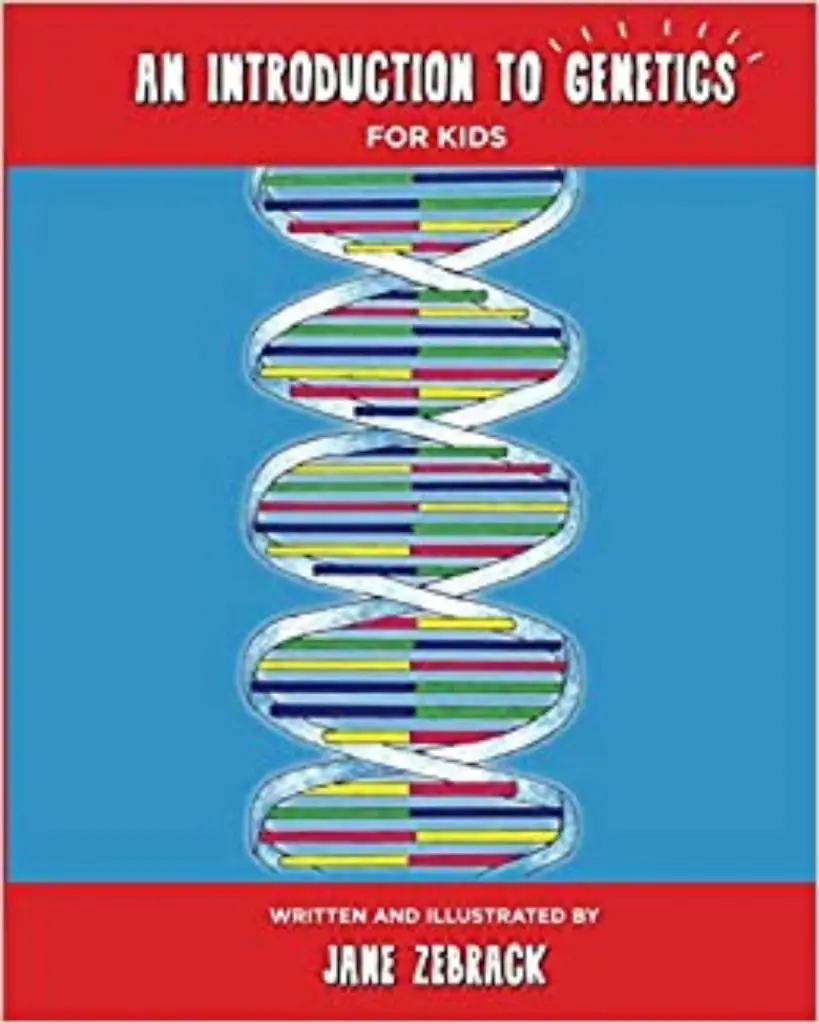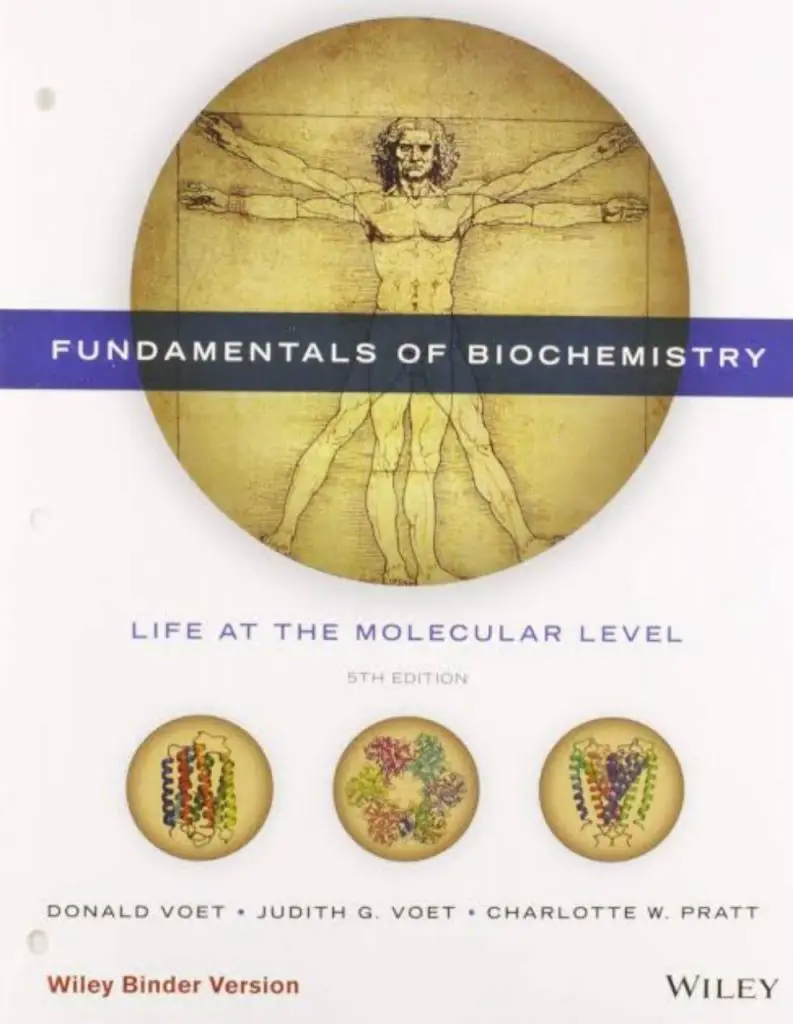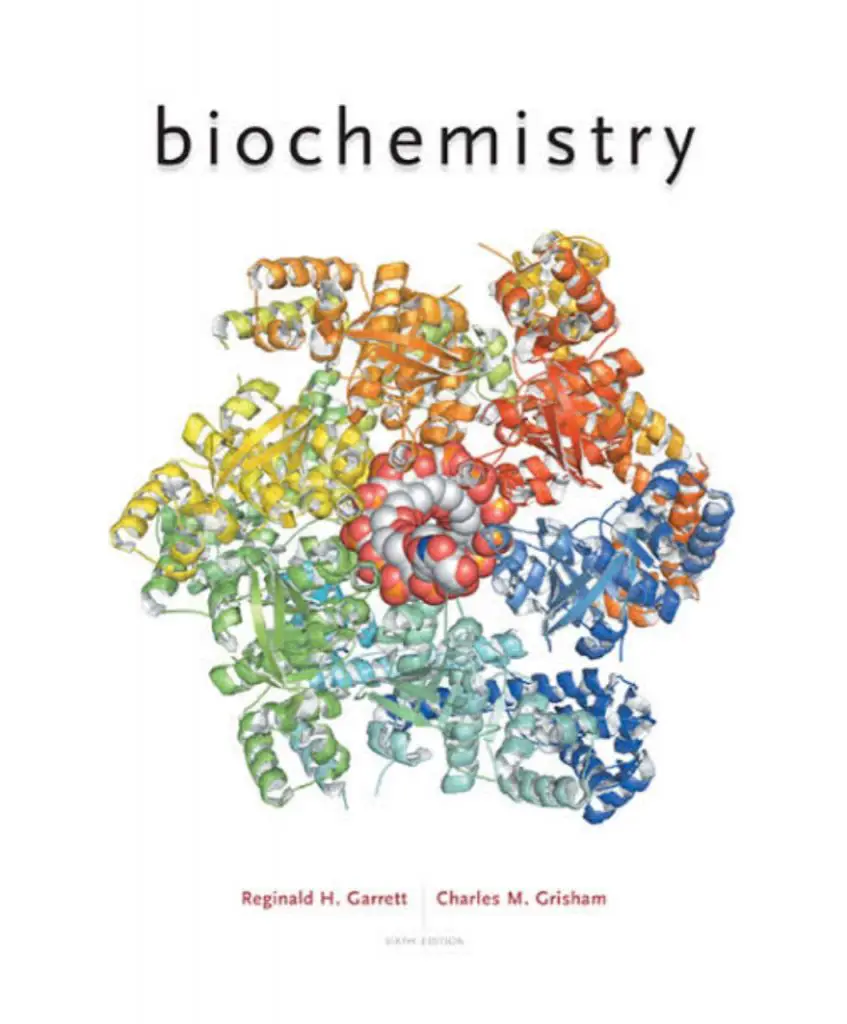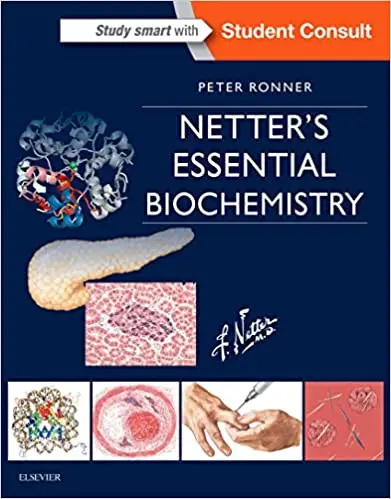Ever wondered what the must-read biochemistry, genetics, and molecular biology are? Here is our take.
As a student or a practitioner, I am sure you know how hard It is to find the right kind of book to add to your reading list.
This article is a good start if you want to read the best books for biochemistry, genetics, and molecular biology sciences students.
This list helps researchers who are tucked in their daily grind to develop their next breakthrough ideas.
For a layperson, this helps you become a well-read lifetime learner.
Our lists focus on many topics, ranging from DNA replication, gene expression, stem cells, molecular biotechnology, cancer biology, gene regulation, signal transduction mechanisms, and gene testing.
Let’s begin!
Table of Contents
List of the Best Biochemistry, Genetics & Molecular Biology Books
Part I: Best Molecular Biology Books
- Essential Cell Biology [Get the book]
- Molecular Biology of the Gene [Get the book]
- Cell And Molecular Biology [Get the book]
- Karp’s Cell and Molecular Biology [Get the book]
- Lewin’s Essential Genes [Get the book]
- The Cell: A Molecular Approach [Get the book]
Part II: Best Genetics Books
- Principles of Genetics [Get the book]
- Gene Machine: The Race to Decipher [Get the book]
- Molecular Biology: Principles of Genome Function [Get the book]
- Essentials of Genetics: Standalone Book [Get the book]
- An Introduction to Genetics for Kids [Get the book]
Part III: Best Biochemistry Books
- Lehninger Principles of Biochemistry [Get the book]
- Fundamentals of Biochemistry [Get the book]
- Biochemistry [Get the book]
- Netter’s Essential Biochemistry [Get the book]
Part I: Best Molecular Biology Books
Essential Cell Biology by Bruce Alberts, Dennis Bray, Karen Hopkin, Alexander Johnson
Intro-Why you should read it
This book is recommended by BookAuthority as one of the cell and molecular biology books beginner students should read.
Essential Cell Biology is an excellent introductory textbook for students studying molecular cell biology.
Summary-What this book is about
The clear writing blends well with the unique illustrations, providing students with strong molecular biology concepts.
The book comes with a plethora of online study materials for both the instructor and the student, including 130 videos.
Key Takeaways
- Getting feedback on your comprehension of the text helps evaluate your understanding of the molecular biology concepts.
- Accuracy, clarity, and less jargon make this book the best for teaching cell biology.
Molecular Biology of the Gene by Watson James, Baker Tania, Bell Stephen, Gann Alexander, Levine Michael, Losick Richard
Intro-Why you should read it
According to the Microbiology Note website, this book is one of the top molecular and cellular biology books available.
The 7th edition of Molecular Biology for the Gene has been extensively updated with the most recent major advances in molecular biology.
Summary-What this book is about
The book retains the distinct flavor of the original editions, making it one of the most common molecular and cell biology books.
Twenty-two compact chapters, co-written by six highly regarded biologists, give it a powerful coverage of the rapidly evolving science of molecular and cell biology.
Key Takeaways
- This book comes in handy for anyone who wants to transition into molecular biology or genomics research.
- Ensure the concepts you are reading are up-to-date. Don’t stick to the old basic concepts.
- Scientists need details, and that is what the top authors did in this book.
Cell And Molecular Biology by De Robertis
Intro-Why you should read it
The Microbiology Note website recommends Cell And Molecular Biology to individuals seeking a different approach to molecular biology and cell biology.
Summary-What this book is about
This book offers an intriguing perspective on cell biology that other authors fail to capture in their books.
Written by two Argentines (father and son), Cell And Molecular Biology use simple publication language to explain the critical molecular biology concepts of the topics it covers.
Key Takeaways
- Scientists should seek different viewpoints to understand a concept fully.
- As a problem-solver, a scientist’s most valuable tool is the ability to understand a problem.
Karp’s Cell and Molecular Biology by Gerald Karp, Janet Iwasa, Wallace Marshall
Intro-Why you should read it
The Microbiology Note website recommends this book for junior or sophomore-level students. The book has a 4.4 customer rating on Amazon.
Two other authors expanded the book’s trademark characteristics to give students a better learning experience.
Summary-What this book is about
Karp’s Cell and Molecular Biology gives a straightforward overview of the key molecular biology concepts while highlighting the experiments that brought the ideas we know today.
This classic book delves deeply into key principles, adding the latest research findings to what you already know.
The friendly tone and reasonable length help students manage the information contained in this text.
Key Takeaways
- The best biology books emphasize the practical approach of the subject.
- Be a smart learner. Molecular and cell biology books may be confusing to most readers. How fast you understand concepts in molecular cell biology depends on how smart you are.
Lewin’s Essential Genes by Jocelyn Krebs
Intro-Why you should read it
The latest version of Lewin’s Essential Genes is an approachable and user-friendly book recommended by Microbiology Note for shorter introductory botany courses.
Summary-What this book is about
The updated second edition offers students the most recent molecular genetics and molecular biology findings.
Lewin’s genes utilize a methodology that continues to improve student learning by aiding their understanding and retention of information.
Besides the questions at the end of every chapter, the book includes a list for further reading to reinforce significant concepts.
Key Takeaways
- Students should focus more intently on the main content in the book.
- Continually evaluate your knowledge after every chapter by participating in the chapter questions. The tests provide measurable learning outcomes.
- You need little prior scientific knowledge to understand the key concepts.
The Cell: A Molecular Approach by Geoffrey Cooper
Intro-Why you should read it
The Cell: A Molecular Approach, 8th Edition, aims to promote active learning with concise writing and a test bank.
The Microbiology Note website recommends The cell as one of the must-have molecular and cell biology books.
Summary-What this book is about
The book highlights essential principles backed by current research, making this text ideal for junior-level students.
This text covers genomics, epigenetics, transcriptional regulation, molecular medicine, and a section on key experiments.
Key Takeaways
- Critical thinking is a crucial ability to learn complex subjects.
- An active learning guide is essential to instructors who want to engage their students.
- The instructor and student engagement are the game-changers in cell biology classes.
Part II: Best Genetics Books
Principles of Genetics by Gardner, Simmons, Snustad
Intro-Why you should read it
Microbiology Note recommends the Principles of Genetics as a book you should have for your molecular genetics course.
This book, written particularly for students, provides a simple, thorough, and distinctive coverage of molecular aspects of genetics.
Summary-What this book is about
Besides focussing on genetics, this book explores the application of the concepts.
Principles of Genetics covers recent techniques employed in contemporary genetics, including gene cloning, northern, western, and southern gene analyses, as well as gene products.
This book focuses on current and future applications of the ideas discussed, making it a unique introductory text.
The book covers chromosome mapping, mutation, gene expression, protein synthesis, cell signaling, protein structure, etc.
Key Takeaways
- Most of the fundamental concepts of genetics are helpful in medicine and agriculture.
- A genetics student should know the current and prospective future applications of the basic principles learned.
Gene Machine: The Race to Decipher the Secrets of the Ribosome by Venki Ramakrishnan
Intro-Why you should read it
The Microbiology Note website recommends the Gene Machine for genetics students.
Summary-What this book is about
Venki Ramakrishnan uses the story of the race to reveal the complex ribosome structure, settling an old life mystery. His discovery set the pace for the invention of stronger antibiotics.
This book is a firsthand account of Venki’s journey to being one of the top biologists in modern science. The journey began in a biology laboratory where he conducted his experiments.
Key Takeaways
- The knowledge of genetics is essential in developing antibiotics.
- Molecular genetics students are creative problem-solvers.
Molecular Biology: Principles of Genome Function by Nancy Craig, Rachel Green, and Carol Greider
Intro-Why you should read it
Find Career Info recommends this book for junior-level students.
Molecular Biology is a comprehensive approach to understanding organisms, tissues, and molecules.
Summary-What this book is about
This well-written guide is rich in knowledge of information transfer across generations.
The book has 19 chapters, presenting basic botanical principles that you need to ace your exams.
The key topics covered in this book include cell structure, cell cycle cell division, nucleic acids, DNA replication, gene expression, RNA processing, genetic code, and much more.
The last chapter outlines the techniques and procedures used in molecular biology research.
Key Takeaways
- The experimental approach is vital for biology classes as it enhances knowledge.
- The authors’ persuasive style of writing helps students understand the concepts better.
Essentials of Genetics: Standalone Book by William Klug, Michael Cummings, Charlotte Spencer, Michael Palladino
Intro-Why you should read it
BookAuthourity recommends Essentials of Genetics because of its straightforward exploration of fundamental genetics topics.
Summary-What this book is about
This bestseller seeks to improve readers’ problem-solving skills by focusing on conceptual understanding, practical application, and problem-solving.
The 9th edition presents the key principles in a concise language with less jargon.
With Mastering Genetics, the book comes with more than 100 online practice problems.
Key Takeaways
- MasteringGenetics provides students with additional opportunities to understand essential ideas.
- Besides interactive lessons, suggestions and feedback are key learning tools for genetics students.
- The tests and practice questions help improve learners’ problem-solving abilities.
An Introduction to Genetics for Kids by Jane Zebrack
Intro-Why you should read it
BookAuthourity recommends An Introduction to Genetics as one of the best genetics books for children.
This book is the perfect introductory guide to genetics for beginners.
Summary-What this book is about
The author employs a fun writing style to promote discussion and encourage critical thinking. Jane Zebrack, the author, seeks to increase awareness of hereditary illnesses and instill in youngsters a love of science, specifically genetics.
Key Takeaways
- This book underscores the need for critical thinking in a science-related profession.
- Introducing kids to genetics from a young age is one step to raising children passionate about the subject of genetics.
Part III: Best Biochemistry Books
Lehninger Principles of Biochemistry David Nelson
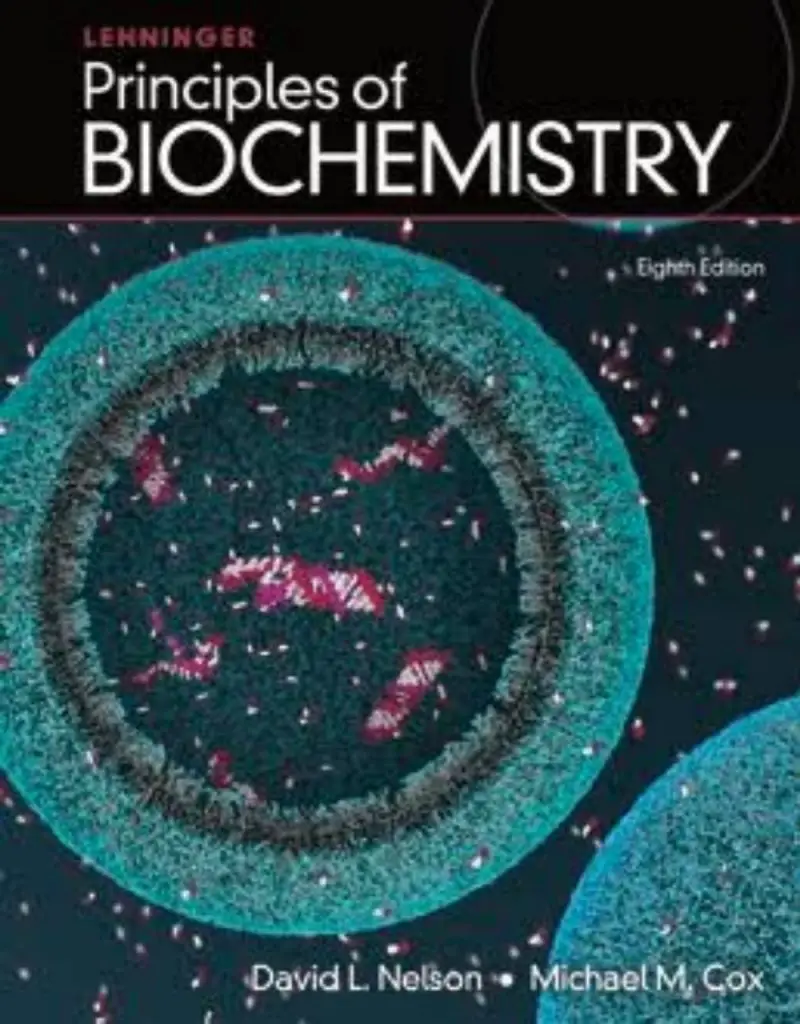
Intro-Why you should read it
Chemistry Hall recommends Lehninger Principles of Biochemistry as the best introductory guide to biochemistry.
Summary-What this book is about
The book provides clarity to the complex principles associated with this field.
This text covers up-to-date biochemistry principles, new advances, and definitive discoveries to the field.
Key Takeaways
- Clear writing style is one of the methods of passing complex ideas to other people.
- The book is a complete introductory course for biochemistry beginners.
- A good scientist should have a grasp of the key science concepts.
Fundamentals of Biochemistry: Life at the Molecular Level by Judith Voet, Donald Voet, and Charlotte Pratt
Intro-Why you should read it
Chemistry Hall recommends Fundamentals of Biochemistry: Life at the Molecular Level to students.
Summary-What this book is about
This book addresses the breakthroughs in biochemistry, notably in bioinformatics and structural biology.
The book offers a solid foundation to prepare biochemistry students for scientific challenges.
The fifth edition maintains the original book’s clear writing and complete coverage of biochemistry topics relevant in several professions.
Key Takeaways
- The knowledge of biochemistry is useful in several professions, including human health.
- Visuals enhance the learning of the principles outlined in the text.
Biochemistry 6th Edition by Reginald Garrett and Charles Grisham
Intro-Why you should read it
Chemistry Hall recommends this book for graduate-level biochemistry students.
Summary-What this book is about
The author highlights the importance of biochemistry in real life, using a creative conceptual framework that guides students throughout the course.
This book contains new content and presentations to introduce learners to the complex biochemistry principles.
The book comes with online resources, allowing for online learning, including the OWLv2.
Key Takeaways
- The book-specific online system improves students’ grasp of the course concepts.
- You need prior biochemistry knowledge to understand this book entirely.
Netter’s Essential Biochemistry by Peter Ronner
Intro-Why you should read it
Netter’s Essential Biochemistry is the recommended book by Chemistry Hall for anyone who wants to learn biochemistry basics.
Summary-What this book is about
The book employs exceptional illustrations and concise writing to assist readers in grasping the biochemistry essentials Peter discusses in this book easily. The questions reinforce the concepts you learned in each chapter.
Key Takeaways
- The learner-friendly approach adopted by the author helps readers assimilate the complex biochemistry principles.
- The author’s unique presentation of the concepts provides a more comprehensive learning experience.
Conclusion
Biochemistry, Genetics, and molecular biology are complex disciples requiring extra reading.
You need the right books to understand topics such as enzyme kinetics, genetic engineering, immune response, microarray techniques, genetic recombination, molecular biotechnology, homologous recombination, genetic testing, and gene cloning.
Our list of the best biochemistry, genetics, and molecular biology books will assist you in making your reading list.
Was this article helpful?
Reference
Molecular biology books
[1] https://microbiologynote.com/top-15-books-for-molecular-biology/
[2] https://www.findcareerinfo.com/best-molecular-biology-books/
[3] https://bookauthority.org/books/beginner-molecular-biology-books
Genetics
[4] https://bookauthority.org/books/best-genetics-books
Biochemistry



